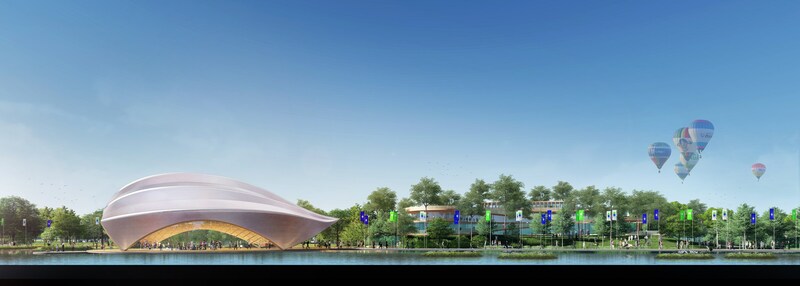BANGKOK: For quite some years, the Bio-Circular-Green (BCG) Economy Model has been key to Thailand’s development strategy. In a nutshell, it espouses sustainability in all its forms, strengthening resilience for communities and the grassroots economy and enhancing the competitiveness of industries in a sustainable and holistic manner.
At the APEC Economic Leaders Week last year in Bangkok, the BCG Economy Model witnessed its crowning moment as it garnered APEC-wide regional commitment in one of the key outcome documents from APEC Thailand 2022, namely the Bangkok Goals on Bio-Circular-Green (BCG) Economy. In essence, the groundwork was laid then, for Thailand to witness the transformative ways in which the country and the region would become greener, more inclusive and more sustainable. This transformation has already started.
Indeed, the path towards full-fledged sustainability is lengthy. It requires a whole-of-society approach. It is also not a final destination, but an ongoing commitment to nurture, further innovate and develop our planet and resources. In any event, 2030 will represent a watershed moment in the pursuit of the Sustainable Development Goals (SDGs). As such, Thailand has incorporated the BCG Economy Model into all roadmaps toward sustainability – national policy agendas, public-private partnerships and international conferences and events, including APEC 2022, BIMSTEC 2022-2023, and Phuket Expo 2028 – to reenergize the pathway towards achieving the SDGs.
At the policy level, the key deliverables from APEC Thailand 2022 and later on BIMSTEC 2022-2023, will reinforce Thailand’s whole-of-society approach towards sustainability through the BCG Economy Model. This has been supported by clear commitments from the private sector. But real transformation, requires buy-in from the people and local communities.
The bid for Expo 2028 in Phuket, Thailand, is one such initiative aimed at bringing green and sustainability concepts closer to the people and their communities. Built on a 22.5-hectare area in Phuket, the bio-ecological Expo site will be a prime and tangible example of localizing sustainable development efforts to yield long-term benefits, for people and community.
Phuket Expo 2028 intends to do all of this through its application of the BCG Economy Model on the 3Ps of people, planet and prosperity, which is not coincidentally part and parcel of the 5Ps of the SDGs.
For example, efforts to advance on people includes scaling up local sustainability projects and developing health and wellness infrastructures as part of Phuket’s five-year development plan (2023-2027) aimed at turning Phuket into a global medical hub, with an eye to medical tourism. Efforts to advance on planet, include designing the Expo building for post-use plan as a quality medical center and ecological park for the public and ensuring all marinas in Phuket adopt environmentally-friendly technologies in their business operations to make local tourism more sustainable, green and resilient.
Efforts to advance on prosperity include work to drive forward a green transformation that will create jobs, bridge wealth gaps and stimulate the local economy, while promoting living in harmony with nature in different sectors.
This green expansion and development of Phuket – in preparation for Phuket Expo 2028 – has drummed up a lot of excitement in the province. But more importantly, it will allow Phuket to position itself to ultimately serve as a scalable regional best practice in bringing the BCG Economy Model to life. So whether Phuket wins its bid for Expo 2028 or not, the work is already underway.
Winning the Expo then, will only help to further unleash the full potential of the city, whose success story will hopefully inspire a much larger audience around the world to follow suit in its quest for sustainability.-bnn/PRNewswire





